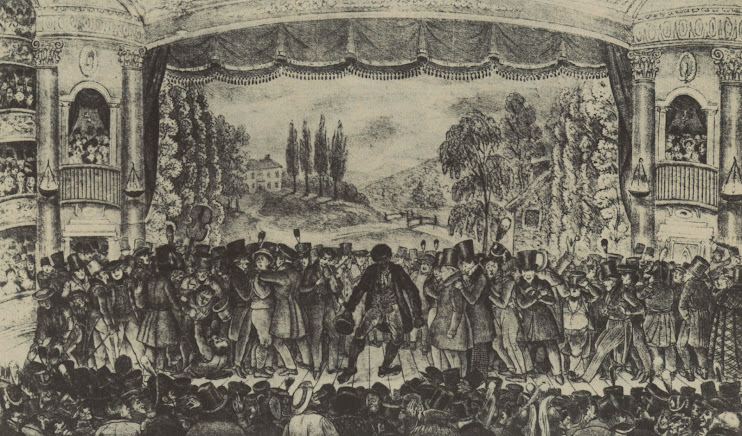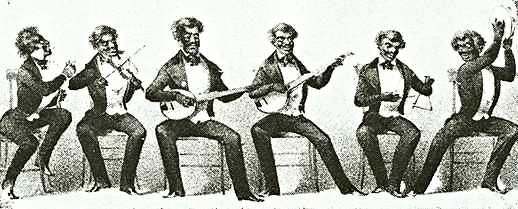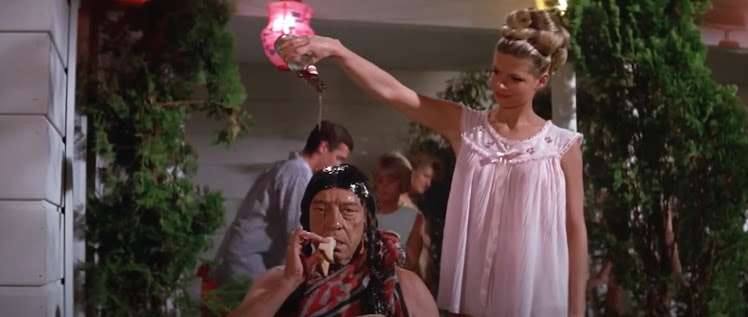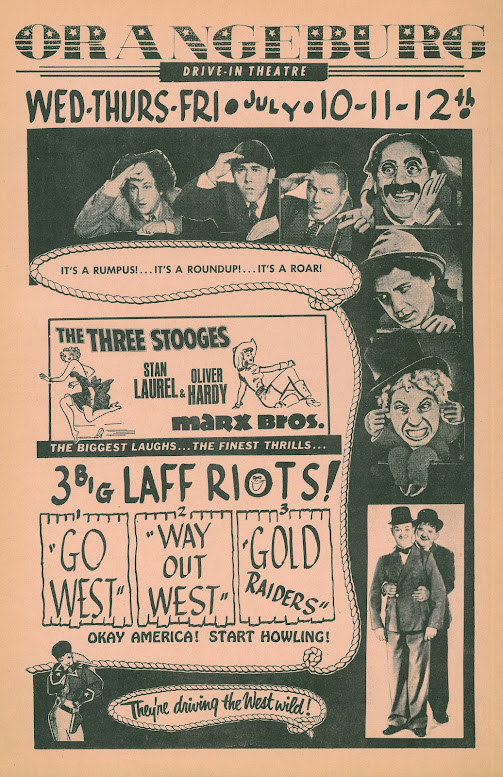Comedy Is Catching
They Laughed 180 Years Ago --- Why Not Now?
Plenty can testify re comedy impact on audiences, us all having experienced it in theatres, but what of days long before screens were hung, and film unspooled? Minstrel times specifically, that which Mark Twain looked at live during the 1840’s when but a boy. He learned then about laughs and what earned them, wrote years later when occasion came to escort his mother and an elderly aunt to their first ever such show, at a time when minstrelsy itself was fading from landscapes. For young Samuel Clemens, the “Negro musical show” of early incarnation was “a glad and stunning surprise,” jokes the funnier as he was hearing them for a first time. Clemens recalled a house convulsed when “Mr. Bones” told of a sea crossing with all provisions lost, passengers subsisting on eggs. “You lived on eggs! Where did you get eggs?” asks the interlocuter. “Every day, when the storm was so bad, the captain laid to.” For years the gag worked, until finally it did not, “the population of the United States had heard it so many times that they respected it no longer and always received it in a deep and reproachful and indignant silence, along with others of its caliber which had achieved disfavor by long service.” What Sam learned about audiences, ones separated by twenty years but hearing same routines, made him realize what comedy can do for and to crowds.
Sam's minstrel encore came during the Civil War, his mother in attendance with him and Aunt Betsey, “a dear and lovely lady of her own age (60),” both “fond of excitement” and novelties. They were in St. Louis, and the Christy Minstrel troupe (“one of the most celebrated … and one of the best”) was playing to an audience of sixteen hundred. Both women were astonished by the costumes and extravagance. Inevitably, the joke about eggs came round. “Everybody in the house except my novices had heard it a hundred times, a frozen and solemn silence settled down upon the sixteen hundred, and poor “Bones” sat there in that depressing atmosphere and went through with his joke,” only this time when the captain “laid to,” there came “heart-whole cackles and convulsions of laughter (from Sam’s mother and Aunt Betsey) that so astonished and delighted that great audience that it rose in a solid body to look, and see who it might be that had not heard that joke before. The laughter of my novices went on and on until their hilarity became contagious, and the whole sixteen hundred joined in and shook the place with the thunders of their joy.” Here was how two members from a mass could turn tides and convert an ordinary evening into an event, “all the jokes as new to them as they were as old to the rest of the house.” Mark Twain might well have spoken for happenings to occur in theatres over the century and a half since: “The audience left the place sore and weary with laughter and full of gratitude to the innocent pair that had furnished to their jaded souls that rare and precious pleasure.”
Could a single person, or pair viewing, accomplish as much today? There is cause to think that moderns are more resistant to humor. Do we age out of capacity to laugh together? I attended a 1977 concert by stand-up comedian Steve Martin at Wake Forest University, him at a peak of new-minted popularity. Here was a college mob, several thousand at least, there to see Steve with his banjo cavort as on Saturday Night Live and other televised places. It couldn’t miss … except it did because gags were all too familiar to nearly everyone in the auditorium. Steve felt flooring sink beneath his feet, stepped finally toward us to plaintively inquire --- you’ve all got HBO, haven’t you? A chorus of yes and scattered applause, but Steve was stuck with what he had prepared, and so doggedly saw through material dog-eared by repeat views of a cable special that now made his live appearance superfluous. Martin’s plight was not unlike comics who in the late twenties agreed to do Vitaphone shorts, these sent to wired theatres throughout the country, a host of towns large and small where the performer could never use those gags again. If vaudeville was dying, here was rushing ahead with burial.
A routine appealing enough might loop a hundred times on our You Tube, three-to-six-minute detail of which is committed forever to memory. Such is province of home sitters alone and thus less weird for looking at a thing over and over, but I recall a time when whole audiences did same rituals, going back weekend after weekend, again in 1977, to worship Smokey and the Bandit. Others of us loitered about the College Park Cinema, so were privy to the odd repeaters. All were past laughing, transfixed instead by cars crashing and liturgy as observed by a cast now cousins to those who devotedly came to re-watch. It always needed audience of sufficient size to bestir glee. I went to a matinee of Young Frankenstein in 1974 and there were maybe fifteen people present. None to my knowledge as much as smiled. A month later I sat in at the College Park and they roared. It took a village, you see. That Chaplin weekend I attended at Durham in 2010 drew but thirty-nine of us to The Circus, but it clicked well as anything to such a small group could, and as told before, I was gratified by applause that came with the finish. What might Chaplin have done with a same house at capacity?
Back to the Civil War and its minstrel night. Was it the two women’s laughter that gave the audience license to respond as heartily? Had they wanted to laugh but did not for fear of looking and sounding like rubes? Mark Twain and his “novices” brought gust of fresh wind into what had become a staid setting. It’s like the time I saw Sabrina at a NY revival house in 1983 and the crowd responded gaily throughout. What a surprise, and what renewal for a favorite still a favorite but taken too long for granted (by me) with no snickers left in it. As movies carry on, humor often timeworn, we more and more need a mainstream’s consent to enjoy it unabashedly. Distancing of age made allowance for “quaint” and enabled a modern minstrel like Buster Keaton to come on Ed Wynn’s TV program in 1949 to reprise The Butcher Boy from dawn of man that was 1917. Old routines served later to a 60's era of irony would rot into camp, Buster again their ambassador in likes of Pajama Party, doing routines he knew were surefire, and yes, they were fresh to many of teens watching. A gag old enough could be brazenly repeated where being old was the joke in itself. I’m thinking of climbs up poles to a sign reading Wet Paint by Laurel and Hardy, first in 1928 (Habeas Corpus), again in 1945 for The Big Noise, then four short years later comes Cary Grant to do the same in I Was a Male War Bride. What did they take us for --- novices?
Robert Youngson compilations was what made it alright to linger upon spent comedy and realize there was much to admire in humor from so long ago. Children and a lot of adults attending The Golden Age of Comedy in 1957 were unknowing successors to Mrs. Clemens and Aunt Betsey. They’d not seen such wonders before. Ones old enough to recall mirth as dealt during the teens and twenties, obviously they were plentiful, could holler This stuff is stale! --- but who believed them amidst fresh-found joy? Novices filled matinee slots where old comedies played not as classic or cult, just content that despite being black-and-white, might still please youth years back of first family color TV. Late as 1963, the Orangeburg, SC Drive-In unspooled Way Out West (L&H), Go West (Marx Bros.), and Gold Raiders (Stooges), all from 30/40’s. What was old became “cornball,” funny again if it was to begin with, being things we could laugh at on multiple levels, ironic, or naïve for ones like Mrs. Clemens or Aunt Betsey who never saw Francis in the Haunted House before. Corny shows, generally three or four features at a sit, were passed-around policy among brother NC/SC exhibitors who knew stix pix fit fewer spots in a growingly sophisticated market waiting on The Graduate or Bonnie and Clyde, but at least for a first half of the sixties, a showman could harvest kernels and flatter crowds by letting all in on the joke “cornball” comedy had become. They should have been around to host the Christy Minstrels, but hold, there came the New Christy Minstrels, founded in 1961, to assert how brief even a century can be for “jaded souls” to gather anew and find fun in most unlikely places.














15 Comments:
Great piece. The "oldest" joke, if one has never heard it before, is brand new.
The comedian in a home full of patients who have no short-term memory left can do the same routine day after day to great acclaim!
Last week, the Mrs. and I screened the Criterion blu-ray of SOME LIKE IT HOT. Neither of us had seen it in decades.
First comment I made at conclusion was, "It's got to be seen with a big audience."
My wife and I each giggled a few times, but we never laughed.
Not sure if a huge audience today would make a difference. I'll never know.
I commented to our Greenbriar host that SLIH was a Martin/Lewis movie, particularly You're Never Too Young. I was informed that Wilder had co-penned The Major and the Minor, which was remade as YNTY. Then it all made sense.
I'm with Mike regarding SLIH. Wilder's dramas are terrific, but his comedies leave me cold.
Comedies of all stripes can be problematic on repeated viewings. I haven't watched the highly-regarded Marx Brothers movies in several years. But in the last year I caught "The Big Store" (first time in 25 or so years),and " A Night in Casablanca" (only the second time since circa 1972). The former was much funnier than I remembered, and the latter better than its reputation.
Long ago, saw an impressive stage production of "Wind in the Willows". One act began with Mr. Toad in prison, wrapped in a blanket and sitting on a cot, wearing an expression of comic self-pity. The audience laughed, with a lot of mildly ironic "Awwws". Mr. Toad sighs deeply and says "Poor Toad ..." A solitary child in the huge theater laughs. Mr. Toad's in-character reaction was to look in her direction, now insulted as well as distressed. It brought down the house.
---------------------
The Francis the Talking Mule movies are so repetitive one wonders why they didn't just re-release the first one. Likewise the Mexican Spitfire series, which was mostly about new excuses for Leon Errol to double as the comic uncle and a drunken Englishman. But they made money. Part of it may be viewers forgetting the previous outings, but sometimes familiarity is part of the appeal.
Radio and TV figured how to milk the same bits endlessly, sometimes by making familiarity part of the joke ("NORM!"); sometimes by simply implying the gag (Jack Benny and Mary are out for a drive. Mary sees a sign reading "Free Samples". Screeching of brakes.).
The dark British comedy "Extras" had its would-be star trapped in a wildly popular but awful sitcom: every character a stereotype with a cheesy catchphrase, plus a studio audience that hoots and howls like the "Married With Children" crowd. Slick shows like "Big Bang Theory" are hardly that dire, but there's a level of predictability fans are clearly counting on.
One more thought: Unless triggered by fellow viewers, I rarely laugh at comedies I've seen before. I may enjoy them immensely, but not loudly. Laughter comes from surprises.
Recently watched the German silent "Hound of the Baskervilles". Caught myself laughing at things not so much funny as unexpected, such as an abrupt reaction shot or a surprise reveal.
Once again, a great piece! Thoughtful reflection and great research.
Much of comedy requires the spark of surprise, so most jokes aren't funny the second time around. Just seeing old stuff with a new, appreciative audience can sometimes turn the trick and make familiar material (or films) seem fresh again. Sometimes. On the other hand, comedy based on characterization or recognizable dynamics between well known characters can actually demand repetition, becoming funnier to fans with each new viewing. Laurel & Hardy, Jack Benny and Seinfeld episodes are good examples of stuff that seems to tickle their respective admirers not in spite of their recycling, but precisely because we know what's coming next.
In 1960, years after his days as half of Wheeler & Woolsey, Bert Wheeler received a call from Ed Sullivan to appear on his show, in the nightclub comedy sketch he performed with his new partner, Tom Dillon. Bert contacted Dillon, who thought this was a great opportunity. "I don't think so," Bert responded. "We're doing well, and we're having fun. Give this act to television and we're dead." Bert was eventually won over and he performed his act on the Sullivan show. Fortunately this exposure didn't hurt Wheeler & Dillon's act. In those pre-cable days CBS only aired the show twice (the second time in a summer "Best of Sullivan" repeat). As I remember it, Sullivan's show was almost a latter-day incarnation of the Vitaphone Varieties, with seasoned show biz vets doing their hallowed routines one last time. I'm doubly grateful that Bert appeared on Ed Sullivan - he made a tremendous hit with the audience that night which had to boost his ego (Groucho Marx wrote Wheeler that it was the funniest thing he had seen in a long time), and for posterity's sake it's a priceless memento (and how lucky I was to get my own print of the act).
Pleased to know that Bert did his routine for Sullivan, so that at least it is preserved. Don't altogether blame him for being reluctant, however.
"precisely because we know what's coming next" --- sums up appeal for much of comedy.
Love that Mr. Toad story, Donald. And will confess here to never having seen a Francis movie.
Re SOME LIKE IT HOT, which for me is a suspense thriller with humor and much good music. I never expected to laugh, and yet it is among my all-time favorites.
Red Skelton called television "the Glass Furnace." It burned up material and acts that had been developed over years of polishing and made them well known (a la the Steve Martin performance mentioned earlier.)
One joy about YT is a series of posts that introduce Abbott & Costello doing their definitive "Who's On First?" routine from their 1953 TV show. It's shown cold to younger people of today and it's wonderful to see the routine work its magic again and again. There was even a group of Koreans (English their second language), who really got into it! I've seen this routine a million times yet it's still fresh when I see it trotted out to people who never even knew who Abbott & Costello were.
" Wilder's dramas are terrific, but his comedies leave me cold."
Have you seen "The Fortune Cookie"?
Yes.
In 1971 I was in Vancouver staying at a hostel. A friend dropped in. She invited me over to her place. There in a newspaper I learned Charlie Chaplin's THE CIRCUS was playing somewhere I knew not where. A gay dwarf drug dealer walked in with a boyfriend about six feet tall. He produced a bag filled with white powder. "Wet your finger," he said. Ripped out of my skull I went for a walk. I arrived at the theater playing THE CIRCUS half an hour before it was to start. The theater was not full but it was a good crowd. By that time whatever I had taken had long worn off. When the movie ended I realized I how no idea how to get back where I was staying. Nonetheless I decided to trust the process that had gotten me there. It worked. It was the first time I saw Chaplin in a venue other than my own. Been trusting that process ever since. Neat home made ads. Thanks.
Dan Mercer considers other occasions when comedy was resurrected to distinctly mixed result:
A lovely piece, John, especially Mark Twain’s ruminations on laughter and humor.
Comedy, it seems, is not only hard, but prone to go stale with the passage of time. I remember the inaugural episode of “Saturday Night Live with Howard Cosell,” the ABC television network’s ill-fated attempt to revive live, prime-time television. This was in 1975, at the height of Cosell’s fame as a witty raconteur on “Monday Night Football,” which apparently gave Roone Arledge, the producer of the sports telecast, the idea that he could be the host of a variety show, too. To say that this was an awkward hour and half is to minimize just how awful the show actually was. Neither Cosell or Arledge had any idea of what was funny. As an example, they had poor Andy Griffith reprise his “What it was was football” routine. For those few, those very few, who don’t remember, Griffith impersonates a hillbilly who has never seen an American football game before and is utterly befuddled by what he is describing. Truth to tell, it is not without charm and it did make Griffith a star. But, and it is a big one, that was in 1953, an immense amount of time for that kind of joke to remain a living thing. A Mark Twain-type should have been hired on as a consultant to the show because he would have warned them off disinterring this corpse of something fondly remembered. Either that or he would have salted the audience with folks like his mother and aunt, whose amusement might have proved similarly infectious. As it was, Andy Griffith died the death of deaths that evening before a huge audience, also live, though you wouldn't have known it from their silence, and, worse, knew that he was dying and yet, live television being what it always has been, he was forced to go on, like a noble Roman falling on his sword. He realizes after the first penetration that this not going to be fun, but he is required to push it in to the hilt.
I noticed the advertisement for the “Cornball Spectacular” included “Francis in the Haunted House” among the four movies shown. This was the feature film at a “spook show” I attended as a naïve adolescent, where I was supposed to get a prize if I managed to survive the occasion without my heart stopping. It is nice to see that this Francis picture was such a versatile item.
Dan Mercer remembers Steve Martin from our shared Wake Forest period:
And Steve Martin on HBO? Yes, I saw it with you during our law school days, in your apartment off campus and on your television with your subscription to that new cable service. It was my first acquaintance with Martin and I was floored by him. It was during his arrow-through-the-head, balloon animal days, where he was essentially giving us a look at the interior life of anyone who took seriously the concept of himself as too cool for words. Would I have been as impressed if I was of a previous generation familiar with Wheeler and Woolsey or Olsen and Johnson in "Hellzapoppin"? I don't know, but your take on his subsequent live appearance at the campus suggests how Vitaphone put in the final nails into the lid of the coffin interring vaudeville.
Post a Comment
<< Home